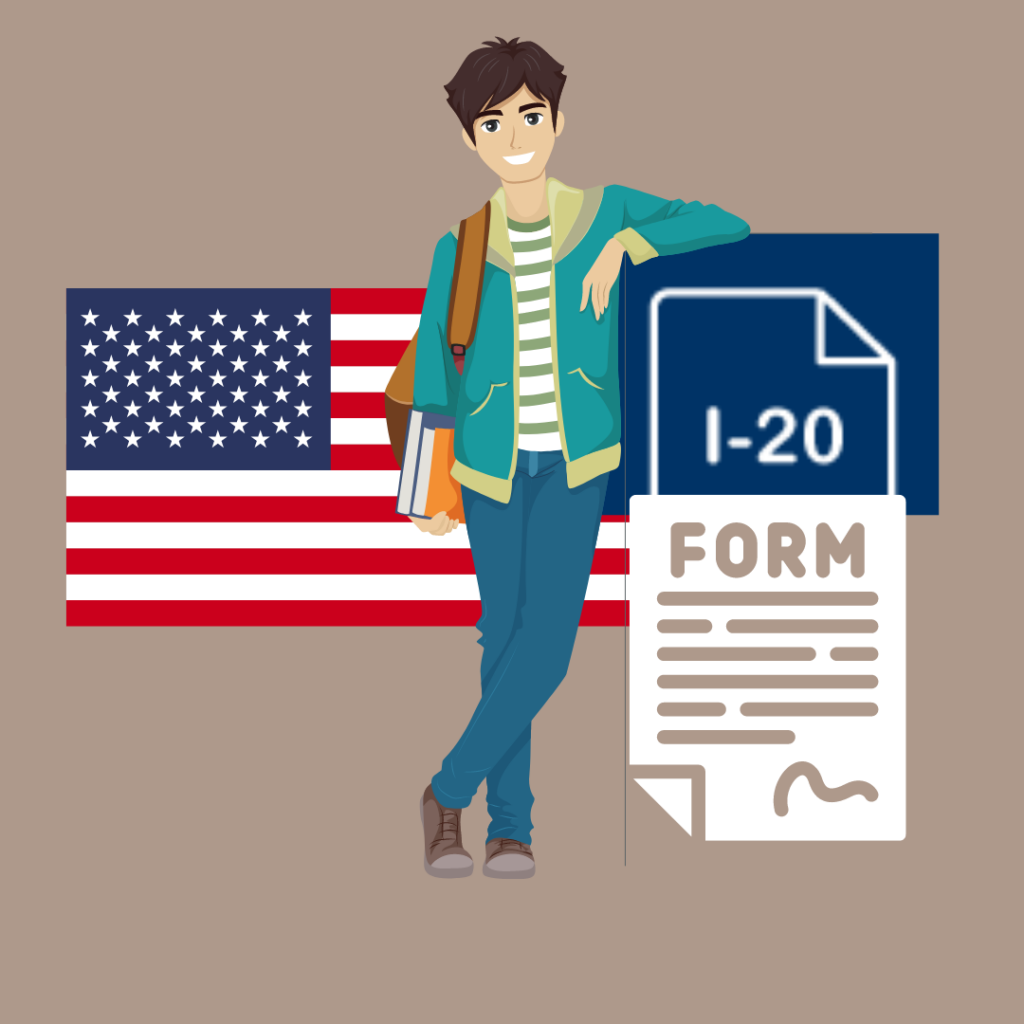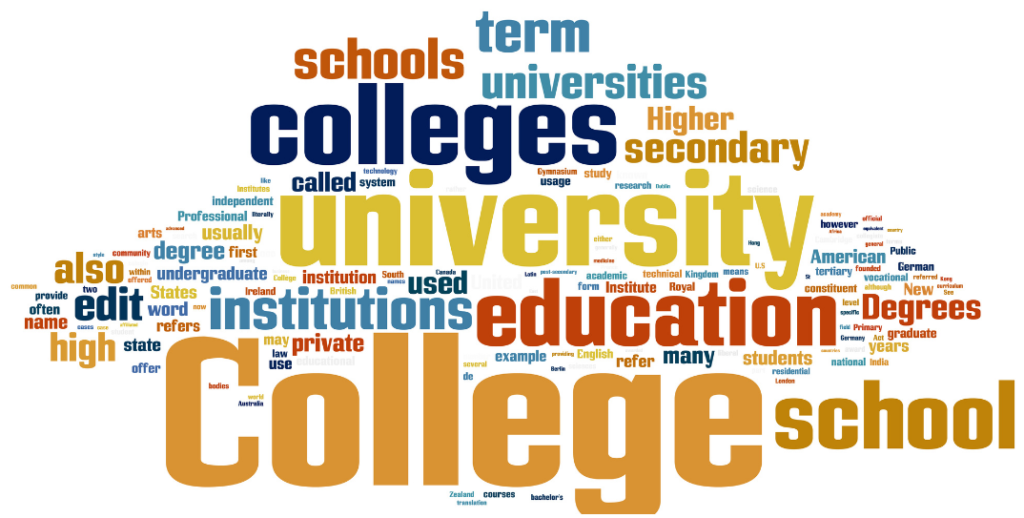
Are you ready to master the TOEFL in 2 months and unlock opportunities for studying abroad? With dedication and strategic planning, achieving success in the TOEFL exam in 2 months is entirely possible. Whether aiming for TOEFL classes in Pune or seeking TOEFL online classes, this guide will provide valuable insights and actionable tips to maximize your preparation and ace the test.
Take a Diagnostic Test
Before diving into your TOEFL preparation, consider taking a diagnostic mock test to assess your current level. This will help you identify your strengths and weaknesses and customize your study plan. By simulating test conditions and timing, you’ll get a realistic preview of the TOEFL exam experience and pinpoint areas that require more focus. Additionally, taking a mock test early on can serve as a motivational tool, providing you with a benchmark to track your progress throughout your preparation journey. Whether you opt for TOEFL classes in Pune or self-study, starting with a mock test can set you up for success by providing valuable insights and a clear starting point for your preparation.
Set Clear Goals
The next step is to take some time to define your goals. Determine your target score and the specific areas to focus on to achieve it. For example, if your dream university requires a TOEFL score of 100, make that your target and break it down into smaller, manageable goals for each test section.
Develop a Study Plan
Now that you know your starting point and your target, the next step is to develop a study plan. Remember that it’s essential to create a structured study plan that covers all sections of the TOEFL test: Reading, Listening, Speaking, and Writing. The diagnostic mock test will reveal your strengths and weaknesses, enabling you to allocate daily study and practice time accordingly. For example, if you struggle with the speaking section, schedule more practice sessions and speaking exercises in your study plan.
Did you know that you can report your test score free of cost to four universities? Click here to know more.
Utilize Quality Resources
Invest in high-quality TOEFL study materials and resources that align with the format and content of the exam. Look for reputable TOEFL online classes or coaching centers in your city that offer comprehensive study materials, practice tests, and expert guidance from experienced instructors. For example, enroll in a TOEFL coaching program that provides access to practice tests, study guides, and interactive lessons tailored to your learning style.
Practice Regularly
Consistent practice is key to mastering the TOEFL in 2 months. Set aside time each day to engage in active learning activities such as reading academic articles, listening to podcasts or lectures, practicing speaking exercises, and writing essays. Aim to simulate test conditions as closely as possible during your practice sessions. For example, use a timer to mimic the time constraints of the actual exam and practice under similar conditions to build your test-taking stamina.
Focus on Test Strategies
Familiarize yourself with effective test-taking strategies for each section of the TOEFL exam. Learn how to manage your time efficiently, skim and scan passages for key information, take effective notes during listening exercises, and structure your responses during the speaking and writing sections. For example, practice skimming and scanning techniques while reading passages to quickly identify main ideas and key details, which can help you answer questions more efficiently in the reading section.
Seek Feedback and Guidance
Take advantage of TOEFL online classes to receive personalized feedback and guidance from experienced instructors across India. Participate in mock tests and practice sessions to identify areas for improvement and refine your test-taking skills. For example, join a study group or attend TOEFL workshops to receive feedback from peers and instructors on your speaking and writing tasks. This will allow you to identify strengths and weaknesses and make targeted improvements.
Stay Motivated and Consistent
Maintaining motivation and consistency throughout your TOEFL preparation journey is crucial for success. Celebrate small victories along the way, stay positive, and remind yourself of your ultimate goal of studying abroad. Surround yourself with a supportive study group or community to stay motivated and accountable. For example, set up weekly study sessions with friends or classmates to review material, share tips, and keep each other motivated and on track.
In conclusion, cracking the TOEFL in 2 months requires dedication, strategic planning, and effective study techniques. By setting clear goals, developing a structured study plan, utilizing quality resources, practicing regularly, focusing on test strategies, seeking feedback and guidance, and staying motivated and consistent, you can maximize your chances of achieving your desired score and fulfilling your academic dreams of studying in the US. With TOEFL Classroom Coaching, you will have the support and resources you need to succeed. Start your TOEFL preparation journey today and take the first step towards a bright future abroad!
As India’s leading Study Abroad Consultant, Dilip Oak’s Academy offers a comprehensive suite of services, including GRE, TOEFL, and IELTS coaching, as well as GRE Self Prep. Furthermore, our admission counseling services can guide you through the entire process from Shortlisting Universities to Visa Counseling. With our expertise, we have successfully sent 32,000 students to various prestigious American universities like MIT, Stanford, Cornell, and Carnegie Mellon. To enroll in our comprehensive overseas education consultancy services, book a free consultation or call us at 91-20-67444222.

Immerse yourself in a narrative rich with GRE high-frequency words, designed to enhance your GRE vocabulary skills while enjoying a captivating story of resilience and community spirit as Ethan navigates challenges, perseveres, and cultivates hope in a small town.
A Rural Haven
In the bucolic (rural) countryside of a small town, there lived a diligent (hard-working) and estimable (admirable) young man named Ethan. Ethan was known for his scrupulous (meticulous) attention to detail and his fervent (passionate) desire to ameliorate (improve) the lives of those around him. Despite the morose (gloomy) atmosphere that often hung over the town due to its precarious (unstable) economic situation, Ethan remained ebullient (cheerful) and hopeful, always harboring (maintaining) a fervor (enthusiasm) for positive change.
A Seed of Inspiration
One day, while perusing (reading) the local newspaper, Ethan stumbled upon an advertisement that caught his attention. It touted (promoted) a new initiative aimed at bolstering (strengthening) the town’s economy through the creation of a community garden. The idea was met with vociferous (loud) support from some residents but was met with disdain (contempt) from others who found it frivolous (unimportant) and spendthrift (wasteful), given the town’s current predicament (situation).
Ethan’s Determination
Undeterred (not discouraged) by the vociferous dissent (disagreement), Ethan decided to take matters into his own hands. He embarked (started) on a sedulous (careful) campaign to mollify (calm) the skeptics and galvanize (motivate) support for the project. With meticulous (careful) planning and an effervescent (enthusiastic) demeanor (behavior), he managed to win over even the most sanctimonious (self-righteous) critics.
Overcoming Opposition
Despite his initial success, Ethan faced myriad (numerous) obstacles along the way. Some accused him of being a spendthrift, others derided (mocked) his efforts as impractical and ostentatious (showy). Nevertheless, Ethan remained impervious (unaffected) to their criticism, determined to see his vision through to fruition (completion).
The Blossoming of Hope
As the days passed, Ethan’s efforts began to burgeon (expand rapidly). The community garden, once an arcane (mysterious) idea, now stood as a symbol of hope and resilience (strength) in the town. Ethan’s perseverance (persistence) and pragmatism (practicality) had paid off, and the garden became a bustling (busy) hub of activity, a testament (proof) to the efficacy (effectiveness) of his leadership.
Lessons Learned
In the end, Ethan’s endeavor (project) was not merely about cultivating crops but about fostering (encouraging) a sense of community and camaraderie (friendship) in a town plagued by divisiveness (division) and apathy (lack of interest). His story became an allegory (symbolic representation) for the power of perseverance in the face of adversity, a lesson that resonated (had an impact) far beyond the confines (limits) of the small town.
Ethan’s Garden has introduced you to over 50 GRE high-frequency words, enhancing your GRE vocabulary while captivating you with a tale of resilience. Remember, learning is ongoing. Keep exploring new words, deepening your understanding, and letting stories like Ethan’s inspire you. With each word learned, you’re not only expanding your GRE vocabulary but also your communication skills. So, let Ethan’s story be just the start of your journey into the world of words. Keep learning, keep growing, and watch your GRE vocabulary flourish like Ethan’s garden.
As India’s leading Study Abroad Consultant, Dilip Oak’s Academy offers a comprehensive suite of services, including GRE, TOEFL, and IELTS coaching, as well as GRE Self Prep. Furthermore, our admission counseling services can guide you through the entire process from Shortlisting Universities to Visa Counseling. With our expertise, we have successfully sent 32,000 students to various prestigious American universities like MIT, Stanford, Cornell, and Carnegie Mellon. To enroll in our comprehensive overseas education consultancy services, book a free consultation or call us at 91-20-67444222.

Are you a student pursuing a Master’s degree in the USA? Are you eager to gain practical experience and boost your career prospects with an internship? Look no further! Here’s everything you need to know about securing an internship during your USA Master’s program!
Understanding CPT (Curriculum Practical Training)
If you’re enrolled in a Master’s program, you’re eligible for CPT, which allows you to work in a position related to your field of study. To qualify, you need to have a valid F-1 immigration status for at least two full-time semesters (equivalent to one academic year). CPT lets you work in a job related to your field of study for up to 364 days.
Why Go for Internships?
Internships aren’t just about making coffee runs, and they offer much more than just workplace experience – they provide invaluable insights into American work culture and help you build a strong foundation for your future career. Typically lasting 10 to 12 weeks during summer breaks (generally from 15th May to 15th August), internships offer opportunities to apply classroom learning to real-world scenarios. Some universities even allow extensions for up to 20 weeks (i.e., for the entire third semester), providing extended hands-on experience. In very rare cases, students can do an Internships during the USA Master’s Program for the full term of 364 days.
The Legal Stuff
Before you jump into an internship, it’s essential to understand the legal requirements. To be eligible for an internship, you must obtain CPT work authorization, which allows off-campus employment for international students (F-1 visa holders) pursuing study programs in the USA and wanting to gain experience in their fields of study. Keep in mind that CPT is not available once you’ve completed your degree program.
Still studying for your GRE? Explore our numerous blogs on GRE Quantitative Reasoning and GRE Verbal Reasoning.
How to Secure an Internship during your USA Master’s Program?
Here are some simple yet effective tips to help you land your dream internship:
Polish Your Resume:
- Outline your major responsibilities within your previous professional work experience. Include action words (such as facilitated, led, managed, maintained, operated, recommended, etc.) that highlight your skills.
- List relevant courses or projects you have worked on.
- List your extracurricular activities or volunteer experience.
- Keep the formatting simple and clean.
Tap into Your University’s Resources:
Every university has a career center or an internship coordinator for co-op and internship programs. Approach them to apply to the positions that interest you. Generally, every university also has a career center website showing internship opportunities in various corporations. Students are advised to visit this website regularly for updated listings and resources.
Explore Online Platforms:
Use job boards like LinkedIn, Monster, Indeed, and Glassdoor to search for internships in your field of interest. Create profiles and set up job alerts to stay informed about new opportunities. You can also use online forums like Glassdoor to look at the interview questions asked in companies that interest you.
Network, Network, Network:
- Request Referrals within Your Network: Connect with individuals in your network within the US and inquire if they are acquainted with employees at companies you are interested in. Internal referrals from existing employees can significantly increase the likelihood of your resume being considered for an interview.
- Career Fairs: Universities typically host career fairs each semester, providing an excellent opportunity to engage with potential employers and alumni. These events offer insights into industry hiring trends, facilitate networking, and present internship prospects.
- Information Sessions and Tech Talks: Universities often arrange information sessions and tech talks featuring various companies, especially during career fairs. These sessions allow current employees, often university alumni, to share insights about their companies and potential opportunities. Prepare a targeted resume to distribute and ask insightful questions beyond what’s available on the company’s website.
Ready to Take the Next Step?
Don’t wait for opportunities to come to you – take action now! Update your resume, reach out to your network, and start exploring internship options today. Whether you are aiming for a summer internship during your USA Master’s Program or seeking opportunities during the academic year, now is the time to kickstart your career journey.
As India’s leading Study Abroad Consultant, Dilip Oak’s Academy offers a comprehensive suite of admission counseling services that can guide you through the entire process from Shortlisting Universities to Visa Counseling. With our expertise, we have successfully sent 32,000 students to various prestigious American universities like MIT, Stanford, Cornell, and Carnegie Mellon. We also offer classroom and online coaching for GRE, TOEFL, and IELTS, as well as GRE Self Prep. To explore our services, book a free consultation or call us at 91-20-67444222.
- abroad education consultant, admission counseling, cpt, curricular practical training, dilip oak academy, F1 visa, graduate assistantship, graduate school fellowships, internship, internship or job, job opportunities, MS in US, optional practical training, overseas education consultant, research assistantship, study abroad, study abroad consultant, us education consultant

When you’re accepted into a Student and Exchange Visitor Program (SEVP)-certified school in the United States as an international student on an F-1 or M-1 visa, you’ll receive a Form I-20 from your designated school official (DSO). This I-20 Form, issued by the Department of Homeland Security, is crucial as it certifies your eligibility to travel to the US as a student, distinguishing you from an immigrant.
Remember that your I-20 is essential for visa application and entry to the US but is NOT a visa. Visas are issued by US consulates, while the I-20 is produced by your school.
Key Points to Verify on Your I-20 Form
Your I-20 is a 3-page document containing essential details, with the most crucial information on the first page. Before accepting your I-20, it’s important to check the following:
Personal Information
Verify that the following details match those on your passport:
- Surname/Primary name
- Given name
- Country of birth
- Country of citizenship
- City of birth
- Date of birth
School Information
Confirm that the following details are correct:
- School name (name of the university)
- Education level (degree applied for)
- Major (field of study)
- Start of classes (start date of the course)
- Program start and end date
In case there’s a mistake in the above information, you can request the university to send a revised and corrected I-20.
Note: While the typical duration between the start and end dates is around 21 months, on certain I-20 forms, it may extend to 28 or even 36 months. However, this does not imply that your course will be longer. The university provides a grace period for completing your studies. Most programs are completed within 3 to 4 semesters, totaling 16 to 21 months.
Financials
Review the estimated costs and funding sources on the form, including scholarships, personal funds, and other financial assistance.
Most universities provide the estimated average cost for 9 months, while some cover expenses for 12 months, which includes living costs for the Summer semester.
The estimated average cost specifies each of the following items separately:
- Tuition and fees
- Living expenses
- Expenses of dependents
- Other miscellaneous costs, such as health insurance
This section also mentions Funding sources, which may include
- Funds from the school (scholarships/financial assistance)
- Personal funds, funds from another source (Family funds)
- Funds from other sources
During the visa interview, students must present financial documents demonstrating access to liquid funds equivalent to the total cost specified on the I-20.
Note: Liquid funds include funds in bank, education loan, employee provident fund, investment in shares and mutual funds.
School and Student Attestation
Confirm that the appropriate university official has signed the I-20. It is also important for you to sign it before your visa interview.
Understanding the Second and Third Pages of the Form I-20
The university utilizes the second page of the I-20 for employment authorization during Curriculum Practical Training (CPT), which allows the student to work in the United States. It also serves as a travel endorsement for a student’s re-entry to the same school after a temporary absence from the United States. Each endorsement remains valid for one year. The third page provides essential instructions for students.
Electronic I-20 Copy for Visa Application
An electronic copy of your signed I-20 is acceptable for visa appointments and entry to the US. Print the signed copy for your visa interview and travel.
Visa Application and SEVIS Fee
After receiving your I-20, you can apply for your visa by scheduling your interview within 360 days before the program start date. Before the interview, ensure you pay the $350 SEVIS fee online. To pay the I-901 SEVIS Fee, go to FMJfee and fill out the SEVIS Form I-901.
Dependent I-20s
Your family members (spouse or unmarried children under 21) must have their own separate I-20s. They will need these I-20s to apply for and enter the US with F-2 visas.
Traveling with your I-20 Form
While studying as an F-1 student, having your I-20 with you is important whenever you travel. You’ll need to carry it along with your passport and F-1 visa when traveling internationally and returning to the US. Make sure to get your I-20 signed by an advisor from the International Center at least once a year if you plan to travel outside the US.
Other Uses of the Form I-20 Form
Your Form I-20 serves as proof of your legal enrollment in a study program within the United States, which is essential when seeking benefits accessible to F and M students. Whether applying for a driver’s license, a Social Security Number, or commencing employment on or off campus, remember to carry your Form I-20 with you.
In Conclusion
Understanding your I-20 is crucial for a smooth transition to studying in the US. By carefully reviewing its contents and following the necessary steps, you can ensure compliance with immigration regulations and enjoy a successful academic journey in the United States.
As India’s leading Study Abroad Consultant, Dilip Oak’s Academy offers a comprehensive suite of admission counseling services that can guide you through the entire process from Shortlisting Universities to Visa Counseling. With our expertise, we have successfully sent 32,000 students to various prestigious American universities like MIT, Stanford, Cornell, and Carnegie Mellon. We also offer classroom and online coaching for GRE, TOEFL, and IELTS, as well as GRE Self Prep. To explore our services, book a free consultation or call us at 91-20-67444222.
Missed the Fall 2024 application deadlines? Not sure what to do next? You’re in the right place! While Fall semester applications are more common, Spring 2025 semester admissions are equally feasible and offer ample opportunities, and we’re here to guide you through the application process. Let’s break it down step by step.
Why Apply for Spring 2025?
Opting for the Spring semester doesn’t just offer flexibility; it unlocks doors to a range of academic opportunities. Numerous universities offer admissions for both Fall and Spring semesters, allowing students to select the timeline that perfectly fits their needs. Choosing Spring 2025 isn’t just about avoiding a year-long wait due to a missed Fall deadline; it’s about seizing the chance to align your academic aspirations with your preferred start date, ensuring a smooth transition into your Master’s program.
Application Timeline
To help you navigate the application process smoothly, let’s break down the timeline:
Pre-requisite Tests: February-June 2024
Before diving into the application process, it’s essential to complete the necessary tests:
GRE and TOEFL/IELTS:
Aim to complete these exams by June 30, 2024. You can explore the comprehensive study options at Dilip Oak’s Academy here: GRE Classroom Coaching, TOEFL Classroom Coaching, and IELTS Classroom Coaching.
Gather Necessary Documents: June-July 2024
Assemble the required documents for your applications:
Statement of Purpose (SOP):
The SOP is a crucial document that offers insight into not only your reasons for choosing the course and university, but also your personality, field experience, and long-term goals. It should be concise, compelling, grammatically correct, and technically sound, spanning approximately 500 to 800 words.
Transcripts:
Obtain official transcripts from your previous institutions. Apply for transcripts well in advance, as some colleges or universities may require more time to process them.
Recommendation Letters:
Recommendation letters are critical documents that vouch for your qualities, background, and achievements as a candidate for the master’s programs. Virtually every university requires applicants to submit three recommendation letters. Choose your recommenders (college professors, project guides, or employers) carefully as these letters are meant to provide a comprehensive view of your suitability for the academic program.
Selection of Universities for Final Application: July-September 2024
Once you’ve completed your tests, it’s time to research and shortlist universities. Consider the following factors:
Specializations:
Not every university provides all specializations. To identify the right fit, explore each university’s course structure, programs, and research areas of professors, aligning them with your academic interests and career goals.
GRE Score:
Usually, universities don’t specify the minimum required score for applications. The score needed varies based on the university’s rank and reputation, information that’s often not available on their website. To gauge the score required, you can refer to the database of previous students admitted to these universities. Dilip Oak’s Academy maintains an extensive database of over 32,000 students who enrolled in various American universities since 1996, including those universities that offer a GRE waiver post COVID. Thus, our extensive database can help you gauge the scores accepted by various institutions.
TOEFL/IELTS Score:
Students must achieve the minimum qualifying score set by the university. Typically, most universities require a TOEFL score of 80, but some may ask for a higher score, up to 100. Similarly, for IELTS, a band score of 6.5 is commonly required, although some universities may seek a higher band, up to 7.5.
Academic Record:
Your academic record from your bachelor’s degree plays an important role in the application process. A strong year-wise GPA is necessary for admission to reputable universities. It’s advisable for students to avoid backlogs or year gaps.
Co-curricular Activities:
Projects, internships, paper presentations, publications, and seminar participations will strengthen your profile, increasing your chances of acceptance into better universities.
Budget:
Tuition fees and living expenses vary among universities, with state universities generally being more affordable than private ones. Students should carefully consider their financial situation when selecting universities. Additionally, students can explore education loans offered by various financial institutions to help cover costs.
Sending applications to universities: July-September 2024
Select 6 to 8 Universities:
Based on the abovementioned criteria, narrow down your choices to 6 to 8 universities for your final applications.
Complete Online Applications:
Make sure to finish the online application process before the university’s specified deadlines. Some institutions may require additional documents via courier alongside the online submission.
Forward Test Scores:
Request ETS to send your GRE and TOEFL scores to the selected universities (scores typically take a minimum of 2 weeks to arrive). The additional score reporting fee for GRE is $27 and TOEFL is $25.
After Sending Applications: Await Decisions and Prepare for Visa
Admission Decisions:
Anticipate admission decisions around September/October 2024. Once you receive an offer, promptly accept it. You’re allowed to accept multiple admissions before finalizing your choice for visa application.
Obtain I-20:
Upon acceptance, fulfill the necessary documentation requirements. The university will then issue you the I-20, a crucial immigration document for obtaining a visa.
Prepare for Visa:
Verify the accuracy of the information on the I-20 and gather the required financial documentation to apply for your visa.
Visa Application Process:
Schedule a visa interview date upon receiving your I-20. You can apply for an F-1 visa (student visa) within 360 days from the course commencement date mentioned on the I-20 form. Once you secure the visa date, proceed with the interview and complete the remaining formalities leading up to your departure.
Ready to dive into your Master’s journey for Spring 2025? Step up your game by gearing up for your GRE and TOEFL/IELTS exams with us! Already aced those exams? Reach out today to kick start your application process with confidence!
As India’s leading Study Abroad Consultant, Dilip Oak’s Academy offers a comprehensive suite of admission counseling services that can guide you through the entire process from Shortlisting Universities to Visa Counseling. With our expertise, we have successfully sent 32,000 students to various prestigious American universities like MIT, Stanford, Cornell, and Carnegie Mellon. We also offer classroom and online coaching for GRE, TOEFL, and IELTS, as well as GRE Self Prep. To explore our services, book a free consultation or call us at 91-20-67444222.
- abroad education consultant, admission counseling, cpt, curricular practical training, dilip oak academy, F1 visa, graduate assistantship, graduate school fellowships, internship, internship or job, job opportunities, MS in US, optional practical training, overseas education consultant, research assistantship, study abroad, study abroad consultant, us education consultant

